Risk of nuclear disaster ‘increasing every day’ in Ukraine
Russia has been accused of stooping to a perilous tactic as its Ukraine invasion flounders, with the risk of diasaster “increasing every day”.
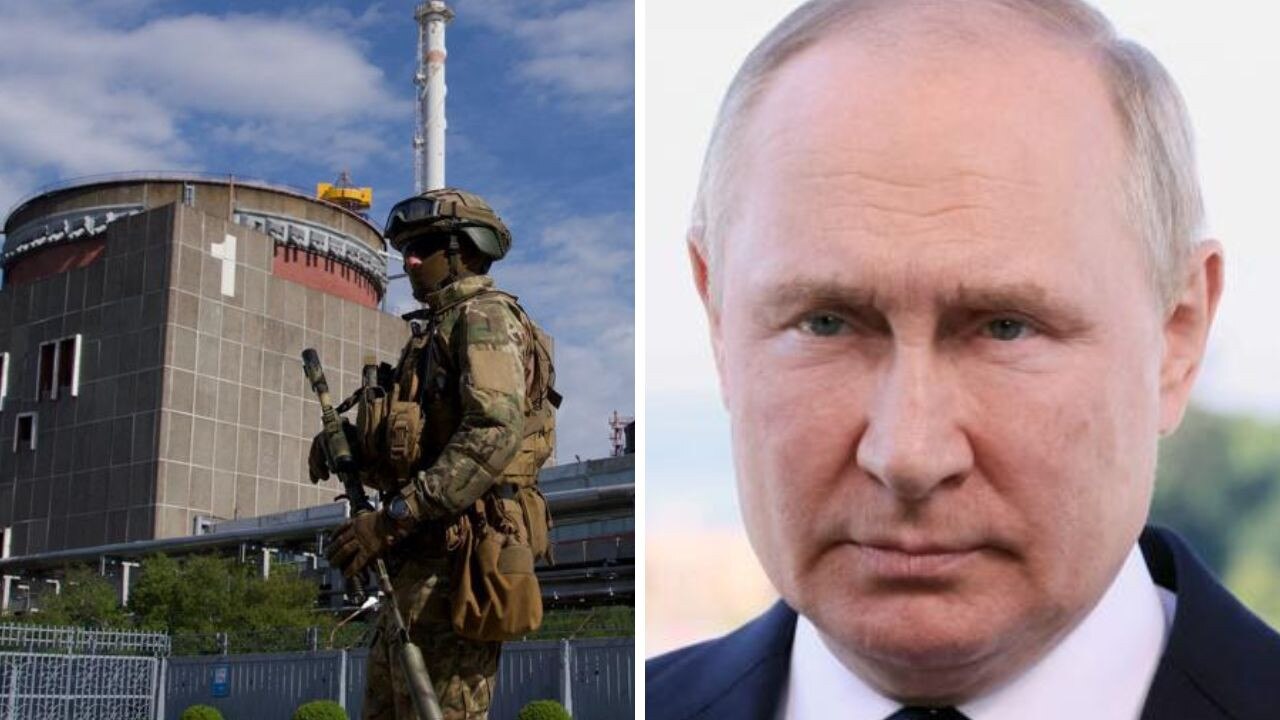
World
Don't miss out on the headlines from World. Followed categories will be added to My News.
A Ukrainian mayor has warned continued attacks on and around Europe’s biggest nuclear power plant are increasing the risk of disaster “every day”.
Ukraine’s Zaporizhzhia nuclear plant was taken shortly after Moscow invaded the country on February 24 and has been occupied by Russian troops since March.
Ukrainian staff continue to operate the plant, which is responsible for up to 20 per cent of Ukraine’s energy needs, but it is under Russian control.
Last week, the plant was shelled and at least 10 hits were reported on the administrative office and fire station, leading to several radiation sensors being damaged and a small fire breaking out on some nearby grass.
Ukraine’s state nuclear company, Energoatom, also said radioactive substances were located near the strikes.
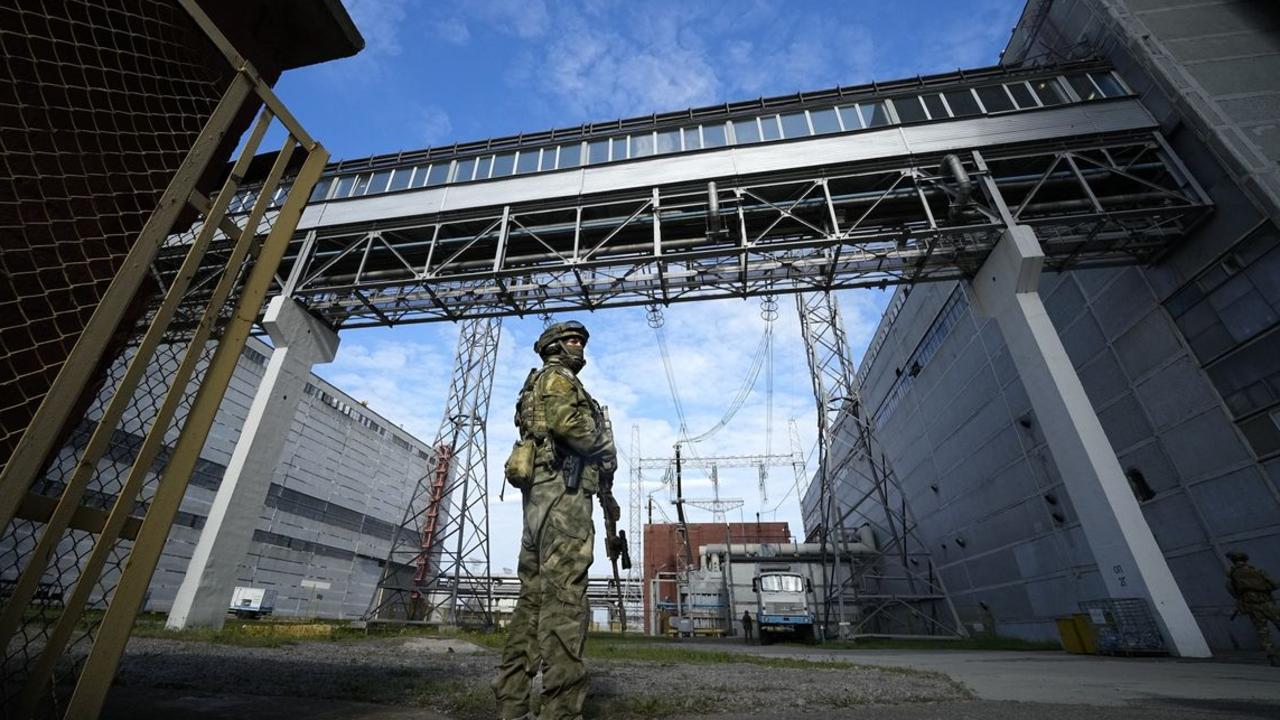
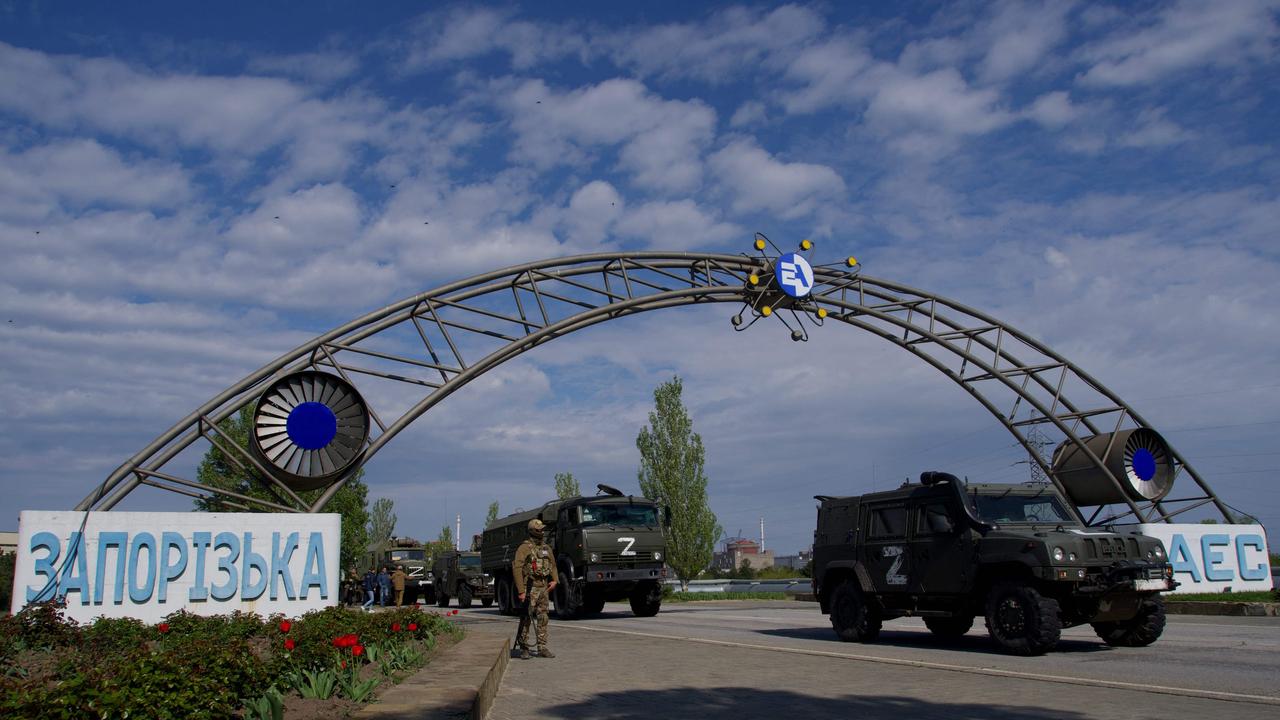
The facility has come under fire repeatedly in the past week, with Ukraine and Russia exchanging blame over the fresh shelling.
Dmytro Orlov, the mayor of Energodar city where the plant is based, told AFP the threat to the plant was nothing short of “nuclear terrorism”.
“What is happening there is outright nuclear terrorism, and it can end unpredictably at any moment,” he said.
“The risks are increasing every day.”
He said there was mortar shelling on the plant “every day and night”.
“The situation is hazardous, and what causes the most concern is that there is no de-escalation process,” he said.
Ukrainian President Volodymyr Zelensky issued a stark warning against any future action around the plant.
“Every Russian soldier who either shoots at the plant, or shoots using the plant as cover, must understand that he becomes a special target for our intelligence agents, for our special services, for our army,” he said in his Saturday night video address.
Mr Zelensky previously accused Russia of nuclear “blackmail” and using the plant to “intimidate people in an extremely cynical way”.
He has also said Russian troops were “hiding” behind the plant to stage bombings on the Ukrainian-controlled towns of Nikopol and Marganets.
Last week, he urged the international community to “react immediately” to force Russian forces to leave the Zaporizhzhia plant.
“The entire world must react immediately to chase out the occupiers from Zaporizhzhia,” Mr Zelensky said.
“Only the Russians’ full withdrawal … would guarantee nuclear safety for all of Europe,” he added, condemning “Russian nuclear blackmail”.
He warned: “Russia may provoke the world’s worst nuclear accident … bigger than Chernobyl.”
Blame game over nuclear plant shelling
However, pro-Moscow officials in the occupied areas of Zaporizhzhia blamed the shelling on Ukrainian forces.
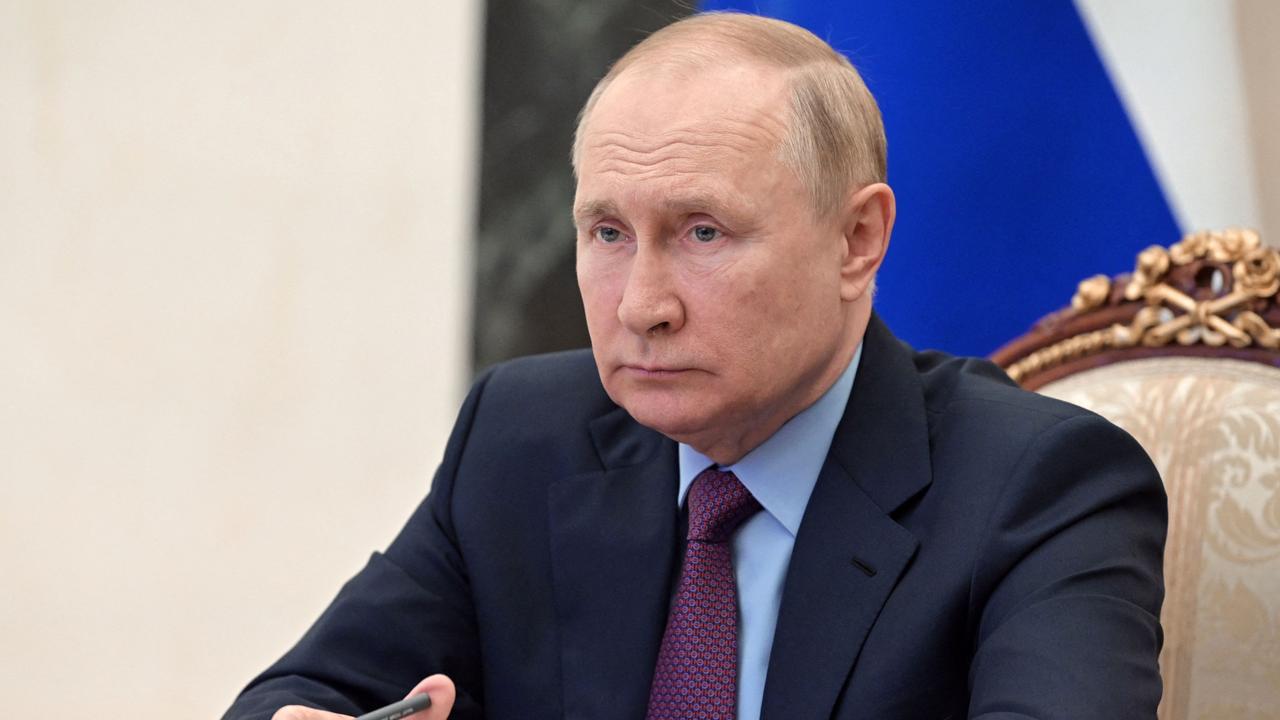
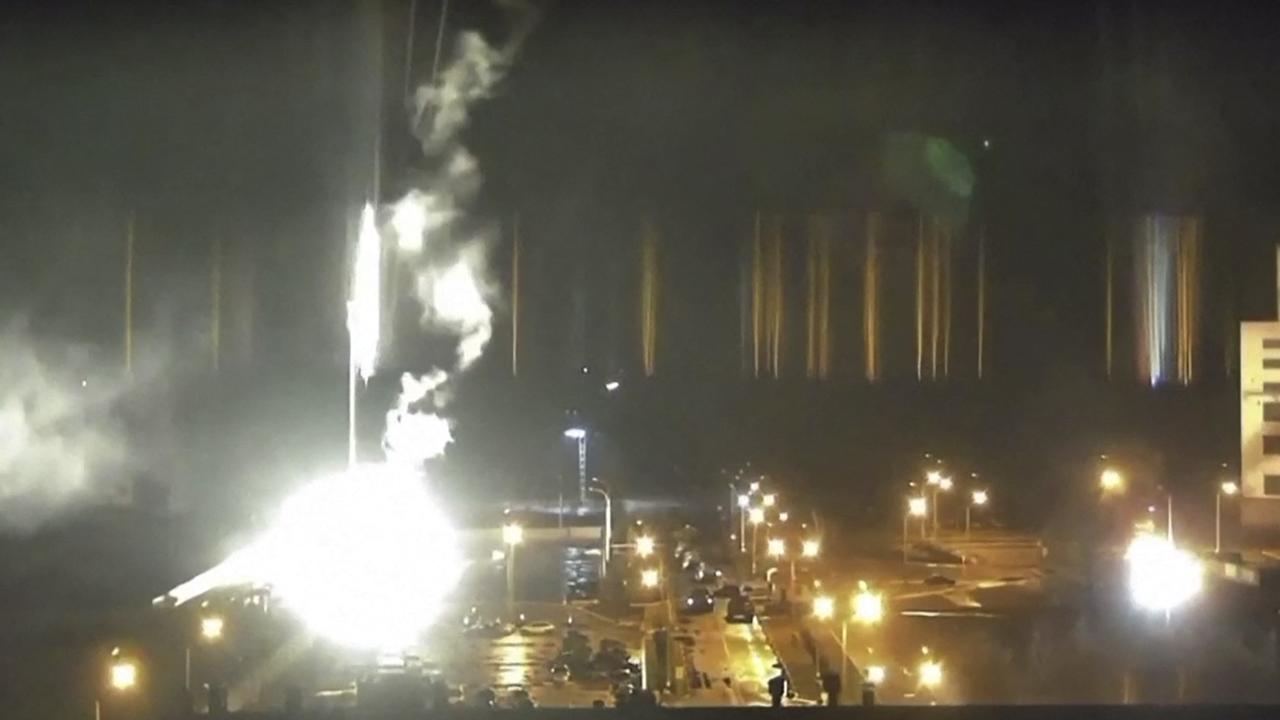
A member of the Moscow-installed administration at the plant, Vladimir Rogov, described missiles falling “in the areas located on the banks of the Dnipro River and in the plant,” without reporting any casualties or damage.
The river divides the areas occupied by Russia and that which is under Ukraine’s control.
The growing concern around the Zaporizhzhia nuclear plant prompted the UN Security Council to call an emergency meeting in New York.
General António Guterres warned continued fighting around the plant could “lead to disaster”.
“Urgent agreement is needed at a technical level on a safe perimeter of demilitarisation to ensure the safety of the area,” he said at the meeting.
The head of the UN’s nuclear watchdog, the International Atomic Energy Agency (IAEA), said they must be allowed to inspect Ukraine’s Zaporizhzhia nuclear plant.
“This is a serious hour, a grave hour and the IAEA must be allowed to conduct its mission to Zaporizhzhia as soon as possible,” Rafael Grossi told the Security Council.
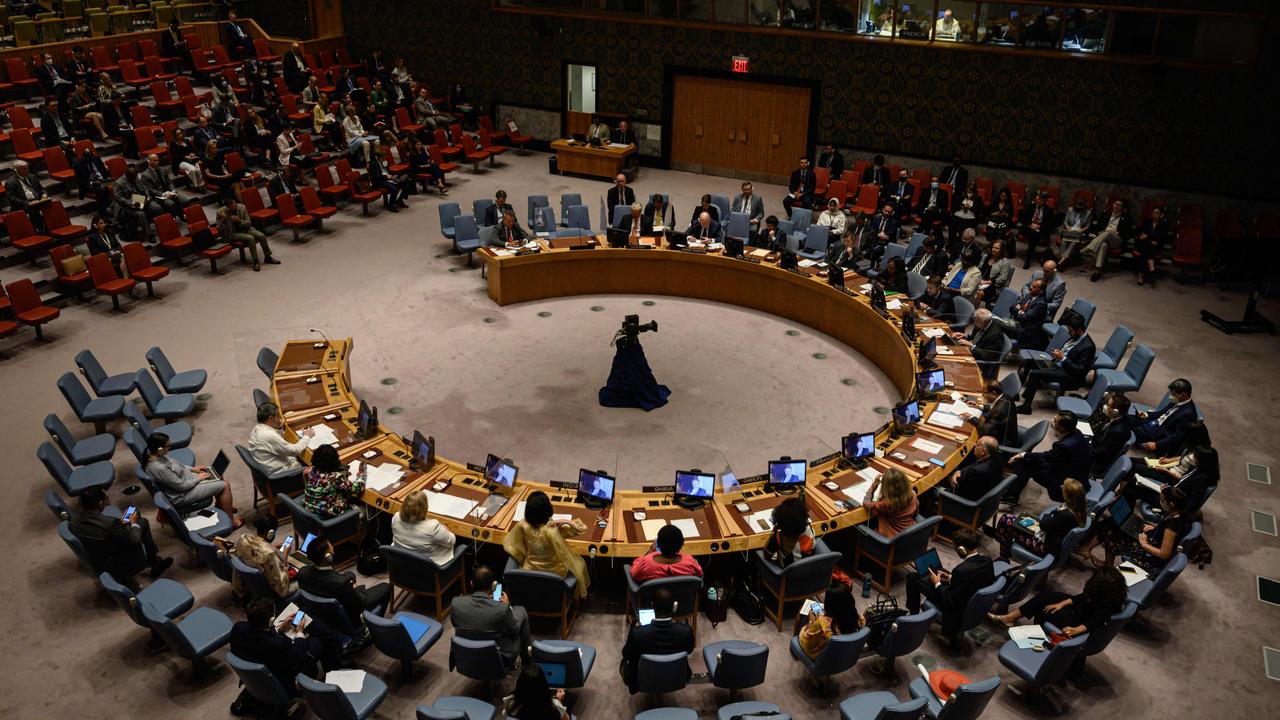
US State Department undersecretary for arms control and international security Bonnie Jenkins supported the idea of an IAEA mission to Ukraine.
“This visit cannot wait any longer,” she told the Council, adding that the only way to ensure nuclear safety would be for Moscow to end its war.
“The United States calls for the Russian Federation to immediately withdraw its forces from Ukraine’s territory,” Ms Jenkins said.
“This would allow for Ukraine to restore the impeccable safety, security and safeguards performance it upheld for decades at the facility.”
However, Russia’s UN ambassador Vasily Nebenzya put the blame for the violence around Zaporizhzhia squarely on Ukrainian forces.
“We call on states that support the Kyiv regime to bring their proxies into check to compel them to immediately and once and for all stop attacks on Zaporizhzhia nuclear power to ensure the safe conditions for the conduct of the IAEA mission,” he told the Council.
“This is the only way to prevent a major radioactive catastrophe on the European continent, the risk of which is now more real than ever.
“If Ukrainian Armed Forces attacks continue, this could take place at any time.”
– with AFP
Originally published as Risk of nuclear disaster ‘increasing every day’ in Ukraine









